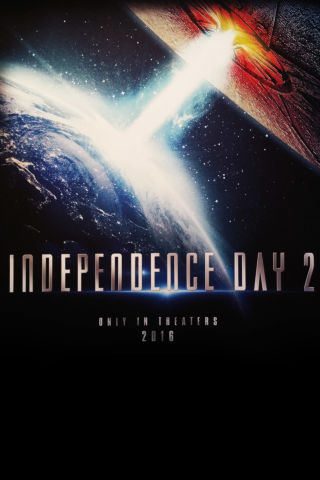Revolutionary Greetings,
As this missive leaves me in Revolutionary Spirits and with strong
desires for emancipation I hope it reaches you in the same manner. I
continue to battle the anti-literacy tactics used by these jackbooted
fascist Pigs that use the word censorship as a tool to keep us deaf,
dumb, & blind. The administration of these Razor Wire plantations,
better known as the overseers, have the dictatorship to keep us from
reading certain books and material that will liberate us from the
continuing cycle of returning to these slave pens of oppression.
Nothing has changed from the tactics used in the 1900s til now, it’s
only hidden better. After the Nat Turner Revolt in 1831 legislation
prohibiting the education of slaves was strengthened throughout the
South. “In the words of one Slave Code… teaching slaves to read and
write tends to cause dissatisfaction in their minds, and to produce
insurrection and rebellion!” Any publication on the topic of
conscious-raising is disapproved under the violation of Division of
Prison Policy Section D.0109 (f) which consists of violence, disorder,
insurrection or terrorist/gang activities against individuals, group
organizations, the government or any of its institutions! We are given
the option to appeal the disapproval, it’s then sent to the Publication
Review Committee, and 80% of the time they agree with the first
disapproval. The recent publications disapproved of mine are the new
issue of Under Lock & Key, The Wretched of the Earth,
and Huey P. Newton’s To Die for the People! The Wretched of
the Earth was approved [on appeal]. I’m still waiting on the
approval of the other two publications.
The Commune here at this Razor Wire Plantation came together to form a
hunger strike due to conditions we are burdened with, such as the high
percentage of disapproved publications. We were promised that we would
be allowed to receive publications if we agreed to end the hunger
strike! I must say that lately books have been coming in that would not
have made it past the mail room. Before the hunger strike I brought to
the attention of the overseer that decides to allow us to have the books
or material sent in, that there were books in the library of this Razor
Wire Plantation that encourage racism, the hanging of Blacks, but those
books are OK because they are in favor of the “overseer’s” ideology.
When brought to the attention of this certain overseer I was laughed at
when I showed him the pictures out of a library book titled The Red
Summer of 1919, where a Black man was being burnt alive while a mob
of whites looked on with smiles on their face. I was asked by this
overseer why would those pictures bother me so much when I’m not a man
of color? What I should do was mind my business and order books other
than the ones I been ordering was what I was told!
So I asked myself this question: is it possible for a white man to
detest racism, oppression, repression, classism and capitalism as much
as I do? Yes Racism is alive and well, but when you are a victim of
classism it causes you to detest Racism! In today’s time you don’t have
certain communities among the proletarian class that’s for one race
only!(*) No, the poor live with the poor and the bourgeoisies live among
the capitalists. The proletarian class and the lumpen are victims of
poor education, which as we know is a pipeline to these Razor Wire
Plantations. The educational system for the poor is a joke! (Angela
Davis said: there is a distinct and qualitative difference between one
breaking a law for one’s own individual self-interest and violating it
in the interest of a class or a people whose oppression is expressed
directly or indirectly, though in many cases he/she is a victim). Poor
education is another tactic used by the capitalist to be able to exploit
the proletarian class! While selling their labor just to keep the lights
on and food on the table there is no extra income for higher educational
opportunity! So the proletarian class education system is the framework
of the capitalist! The bourgeoisie gains their strength and stability
from framework of poor education for the proletarian class. With proper
education and educational opportunities the proletarian class could
liberate themselves from the need to sell their labor to provide their
loved ones with life’s necessities! The capitalist know if this was to
happen then the stronghold they have over the poor would be no longer!
Most of us allow ourselves to be controlled because of fear of losing
something. This fear is what the bourgeoisie uses against us to control
us. These chains must be broken for emancipation to take place! It
starts with the necessities of solidarity.
Being in solidarity among the proletarian class means building strong
relationships and strong communities of resistance. We must get back to
the foundation of movement building, which is about building
relationships and sustainable communities while breaking out of the
confines of single issue organizing. Our accountability lies in what we
do within our own communities. Focusing on our communities compels us to
understand First World privilege (i.e. if you reside here you’ve got
privilege). On the contrary privilege is layered by histories of
slavery, colonization, patriarchal control, etc. Our solidarity
struggles must therefore find ways to address these inequalities within.
This involves listening and learning from the struggles of the
proletarian masses. This would take the kind of inter-communal
solidarity that Huey P. Newton had in mind.
Comrades, it starts with us held captive within the gulags of these
Razor Wire Plantations. How, you ask? Turning these Slave pens of
oppression into Schools of Liberation! The Science of Revolution must be
spread to the masses of the communities! The help of Revolutionary
intellectuals is a must because the key to the people’s unity is
Revolutionary Consciousness! Instead of wasting time on who is right and
who is wrong, instead of not being in solidarity with the next person
because of their skin color, we must come together and spread the
Science of Revolution to the unconscious. Theory is made to be advanced;
nothing can stay the same because the capitalists strategize ideas to
continue to control change every day. When one advances the theory of
Marx, Lenin, or Mao it is not in disrespect or disregard of these great
Revolutionists. Lenin said: “without Revolutionary theory there can be
no revolutionary movement.” We must focus on our communities. If our own
communities are not strong enough to stand up to neoconservatives, then
the work of those who promulgate war without end, the dictatorship of
the free market, and the stealing of indigenous land will be made all
the easier! With no unity among us then we are weak and not a factor!
There are many organizations, groups, and cadres with different
ideologies but have the same goal in mind! As long as we fight amongst
ourselves then we are allowing capitalism to live!
The future of our emancipation lies in our hands people. So as I bring
this to an end, I ask that you really think about our own Liberation and
the well being of our communities as well as the future of education for
the youth. Frantz Fanon said: “Each generation must, out of relative
obscurity, discover its mission and fulfill it or betray it.” What’s
your mission?
MIM(Prisons) adds: It is timely that comrades are organizing
actions to protest censorship of educational materials by the North
Carolina Department of Public Safety (NCDPS), as we just learned that a
lawsuit
will be going to trial on the same issue. Comrades on the inside and
outside are making moves that culminate five years of consistent
paperwork battles between MIM Distributors volunteers and NC prisoners
on one side and NCDPS prisoncrats on the other.
Those locked up in North Carolina recognized those efforts as our
subscribership expanded during periods of time when Under Lock &
Key was completely banned in the state. But prisoners did receive
the protest letters sent by our volunteers and those letters circulated,
sparking even more interest in ULK. As efforts build on both
sides of the fence, MIM(Prisons) will continue to support and promote
this campaign against illegal censorship and political repression. As
this comrade argues, this is an important battle because it contributes
to our efforts to make revolutionary science accessible to the oppressed
masses.
* While we agree with this comrade’s points about education and
censorship, we do not seem to agree on our analysis of class and nation
in the United $tates. In recent analysis, published in part in
Under Lock & Key
51 we show that the class make up of different nationalities in the
United $tates are different and that segregation of communities is on
the increase. We stand in solidarity with the comrades’ actions in North
Carolina across national lines for their common interests as prisoners.
And while this is an example of class preceding nation, we believe that
nation overall is the principal contradiction in this country. This is
partially because class contradictions are so weak in the richest
country in the world. And recent events around police brutality and
prison abuse have shown us uprisings that are very homogeneous in their
national makeup. And this is where we see the most radical fractures in
our society.






 Alabama
Alabama
 Alaska
Alaska
 Arizona
Arizona
 Arkansas
Arkansas
 Army Post
Army Post
 California
California
 Colorado
Colorado
 Connecticut
Connecticut
 Delaware
Delaware
 District of Columbia
District of Columbia
 Federal
Federal
 Florida
Florida
 Georgia
Georgia
 Guam
Guam
 Hawaii
Hawaii
 Idaho
Idaho
 Illinois
Illinois
 Indiana
Indiana
 Iowa
Iowa
 Kansas
Kansas
 Kentucky
Kentucky
 Louisiana
Louisiana
 Maine
Maine
 Maryland
Maryland
 Massachusetts
Massachusetts
 Michigan
Michigan
 Minnesota
Minnesota
 Mississippi
Mississippi
 Missouri
Missouri
 Montana
Montana
 Nebraska
Nebraska
 Nevada
Nevada
 New Hampshire
New Hampshire
 New Jersey
New Jersey
 New Mexico
New Mexico
 New York
New York
 North Carolina
North Carolina
 North Dakota
North Dakota
 Ohio
Ohio
 Oklahoma
Oklahoma
 Oregon
Oregon
 Pennsylvania
Pennsylvania
 Puerto Rico
Puerto Rico
 Rhode Island
Rhode Island
 South Carolina
South Carolina
 South Dakota
South Dakota
 Tennessee
Tennessee
 Texas
Texas
 Utah
Utah
 Vermont
Vermont
 Virginia
Virginia
 Washington
Washington
 West Virginia
West Virginia
 Wisconsin
Wisconsin
 Wyoming
Wyoming


